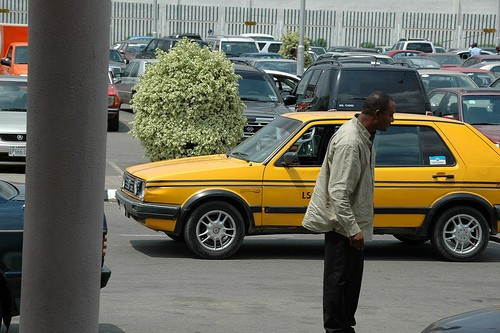Nigerian Fury As Fuel Prices More Than Double on Subisidy Lift

Fuel prices in Nigeria have more than doubled after the government lifted energy subsidies in the New Year, enraging the public and labor unions.
The government said that by removing the subsidy it will be able to save about $8-billion annually, which, in turn, would be used to finance infrastructure projects which the country desperately needs.
Gas stations in the teeming capital city of Lagos were charging $3.60 per gallon on Monday, up from $1.70 per gallon prior to the subsidy expiry, Associated Press reported.
Reportedly, some gas stations were closed as the owners did not know what how much they should charge.
The government also warned the public not to hoard fuel or buy on the black market.
Consumers are assured of adequate supply of quality products at prices that are competitive and non-exploitative, the state said.
Labor unions have threatened strike action if the government does not restore the subsidy.
In a joint statement, the Nigerian Labor Congress and the Trade Union Congress of Nigeria said the government’s decision was callous, insensitive and is intended to cause anarchy in the country.
The unions added: We alert the populace to begin immediate mobilization towards the D-Day for the commencement of strikes, street demonstrations and mass protests across the country. This promises to be a long-drawn battle; we know it is beginning, but we do not know its end or when it will end. We are confident the Nigerian people will triumph.”
Fuel is used by ordinary Nigerians not only for their cars, but also for power generator in their homes and stores in order to cope with the country’s endemic electric power outages.
An irate taxi driver told AP: They want to kill the masses. They are deceiving us here in the name of governing us.
Another driver lamented: “The price of everything will go up, fares will go up and food will go up too. My biggest worry is losing my customers because this is how I feed my family.”
Oil-rich Nigeria, an OPEC member that produces about 2.4-million barrels of crude daily, has provided cheap fuel to its citizens for years through the subsidy.
Bizarrely, the country has to import almost its refined petroleum products due to decades of corruption and mismanagement, as well as violence and sabotage at its refineries.
One Nigerian blogger responded to BBC by writing: “We are talking about a government that does absolutely NOTHING for its people. Due to the poor power and transport infrastructure petrol has become the country's main energy source (we are not talking about a few private cars here). Due to poor power supply residents and businesses have to resort to petrol fired generators for electricity. That is reality in Nigeria.”
Another blogger declared: “I [agree] the subsidies need to be removed at some point but this is the worst possible time. With all the instability in the north and still no solution to the energy problems! Nigerians and their [politicians] need to learn how to plan things. You don't just remove [subsidies] like this.
Public unrest over soaring energy prices is the last thing that Nigeria’s president Goodluck Jonathan needs right now. Over the weekend, he declared a state of emergency in parts of the Muslim-dominated Northern part of the country as a response to waves of killings by Boko Haram, an Islamic fundamentalist militant group that seeks to destabilize the government and establish a Taliban-like state of Shariah throughout the country.
Boko Haram, which initially targeted government officials and police, are not massacring ordinary people as well.
© Copyright IBTimes 2024. All rights reserved.




















